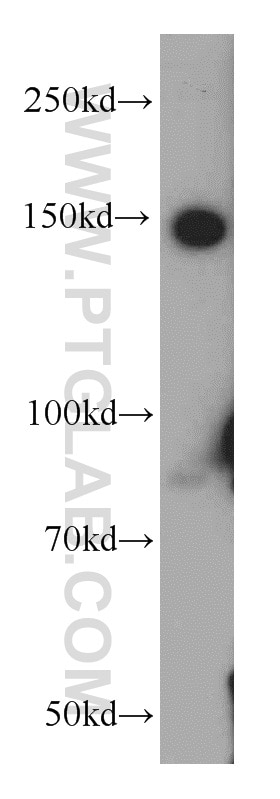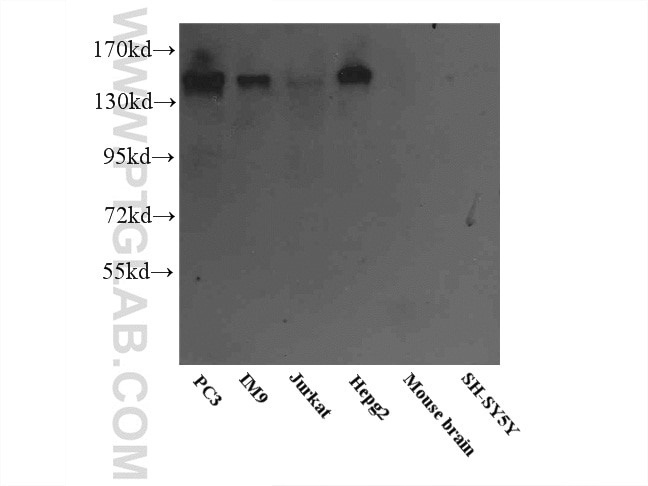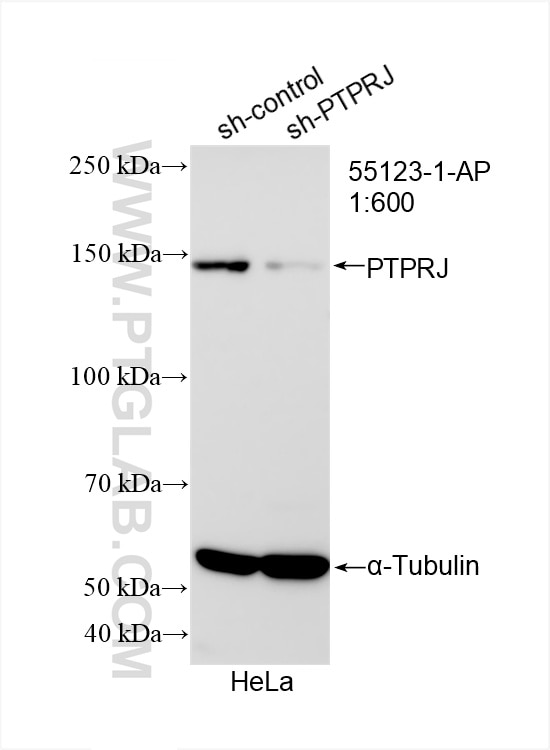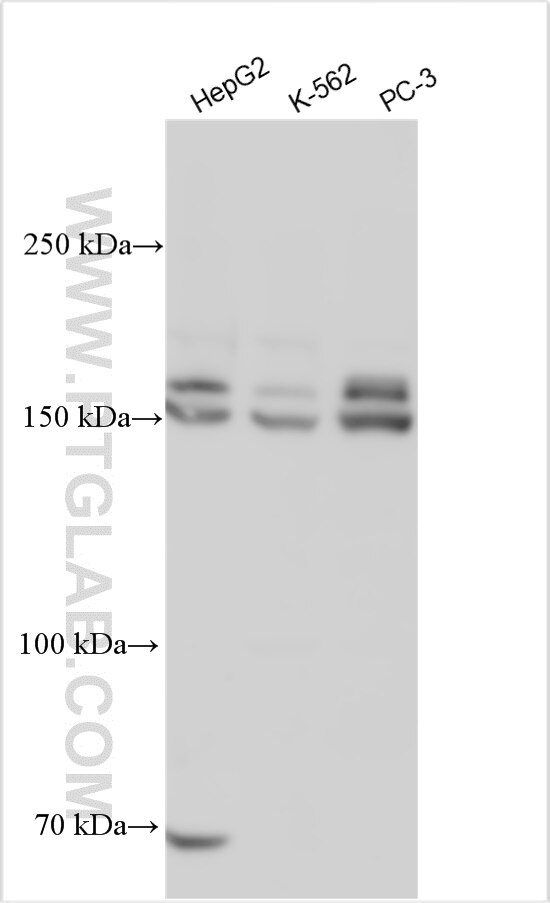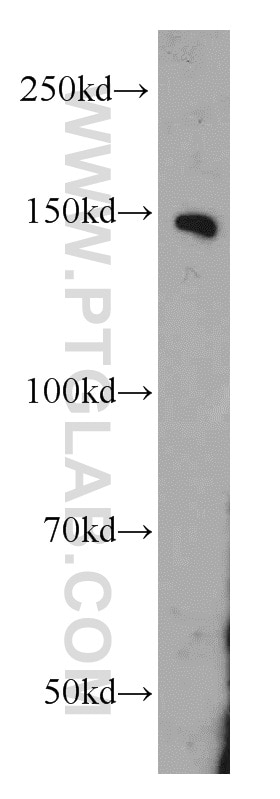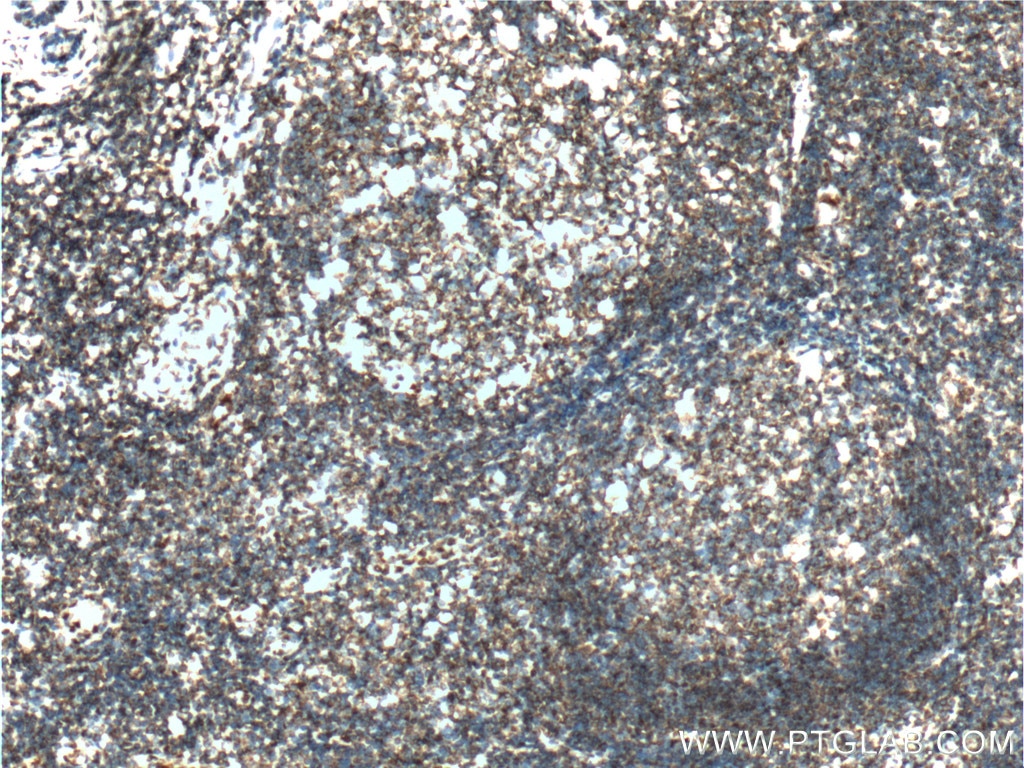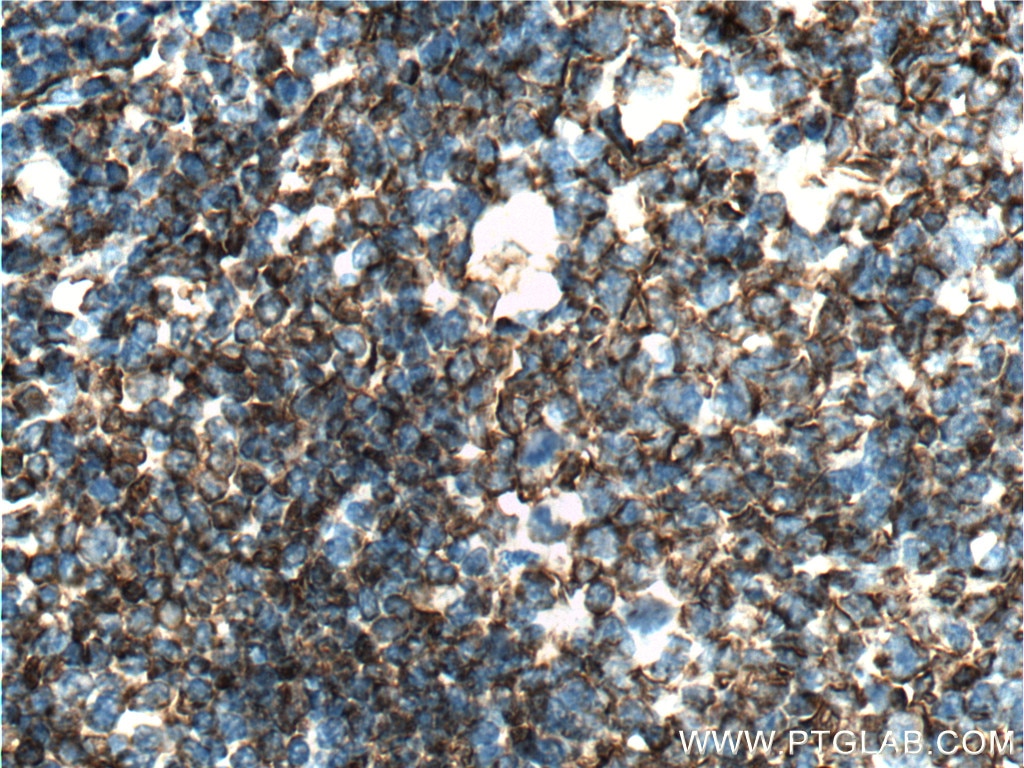- Featured Product
- KD/KO Validated
PTPRJ Polyklonaler Antikörper
PTPRJ Polyklonal Antikörper für WB, IHC, ELISA
Wirt / Isotyp
Kaninchen / IgG
Getestete Reaktivität
human
Anwendung
WB, IHC, ELISA
Konjugation
Unkonjugiert
Kat-Nr. : 55123-1-AP
Synonyme
Geprüfte Anwendungen
| Erfolgreiche Detektion in WB | HepG2-Zellen, HeLa-Zellen, Jurkat-Zellen, K-562-Zellen, Multizellen/-gewebe, PC-3-Zellen |
| Erfolgreiche Detektion in IHC | humanes Tonsillitisgewebe Hinweis: Antigendemaskierung mit TE-Puffer pH 9,0 empfohlen. (*) Wahlweise kann die Antigendemaskierung auch mit Citratpuffer pH 6,0 erfolgen. |
Empfohlene Verdünnung
| Anwendung | Verdünnung |
|---|---|
| Western Blot (WB) | WB : 1:500-1:1000 |
| Immunhistochemie (IHC) | IHC : 1:100-1:400 |
| It is recommended that this reagent should be titrated in each testing system to obtain optimal results. | |
| Sample-dependent, check data in validation data gallery | |
Veröffentlichte Anwendungen
| WB | See 2 publications below |
| IHC | See 2 publications below |
Produktinformation
55123-1-AP bindet in WB, IHC, ELISA PTPRJ und zeigt Reaktivität mit human
| Getestete Reaktivität | human |
| In Publikationen genannte Reaktivität | human |
| Wirt / Isotyp | Kaninchen / IgG |
| Klonalität | Polyklonal |
| Typ | Antikörper |
| Immunogen | Peptid |
| Vollständiger Name | protein tyrosine phosphatase, receptor type, J |
| Berechnetes Molekulargewicht | 146 kDa |
| Beobachtetes Molekulargewicht | 146-170 kDa |
| GenBank-Zugangsnummer | NM_002843 |
| Gene symbol | PTPRJ |
| Gene ID (NCBI) | 5795 |
| Konjugation | Unkonjugiert |
| Form | Liquid |
| Reinigungsmethode | Antigen-Affinitätsreinigung |
| Lagerungspuffer | PBS with 0.02% sodium azide and 50% glycerol |
| Lagerungsbedingungen | Bei -20°C lagern. Nach dem Versand ein Jahr lang stabil Aliquotieren ist bei -20oC Lagerung nicht notwendig. 20ul Größen enthalten 0,1% BSA. |
Hintergrundinformationen
PTPRJ, also named as CD148 and DEP1, belongs to the protein-tyrosine phosphatase family and Receptor class 3 subfamily. PTPs are known to be signaling molecules that regulate a variety of cellular processes including cell growth, differentiation, mitotic cycle, and oncogenic transformation. PTPRJ may contribute to the mechanism of contact inhibition of cell growth. PTPRJ is present in all hematopoietic lineages, and was shown to negatively regulate T cell receptor signaling possibly through interfering with the phosphorylation of Phospholipase C Gamma 1 (PLCG1) and Linker for Activation of T Cells (LAT). It was also found to dephosphorylate PDGF beta receptor, and may be involved in UV-induced signal transduction. The antibody is specific to PTPRJ.
Protokolle
| PRODUKTSPEZIFISCHE PROTOKOLLE | |
|---|---|
| WB protocol for PTPRJ antibody 55123-1-AP | Protokoll herunterladen |
| IHC protocol for PTPRJ antibody 55123-1-AP | Protokoll herunterladenl |
| STANDARD-PROTOKOLLE | |
|---|---|
| Klicken Sie hier, um unsere Standardprotokolle anzuzeigen |
Publikationen
| Species | Application | Title |
|---|---|---|
J Pathol The protein tyrosine phosphatase receptor type J is regulated by the pVHL-HIF axis in clear cell renal cell carcinoma. | ||
Onco Targets Ther Comprehensive Analysis of Aberrantly Expressed Competitive Endogenous RNA Network and Identification of Prognostic Biomarkers in Pheochromocytoma and Paraganglioma. | ||
Clin Proteomics iTRAQ plasma proteomics analysis for candidate biomarkers of type 2 incipient diabetic nephropathy. | ||
Theranostics Comprehensive multi-omics analysis of pyroptosis for optimizing neoadjuvant immunotherapy in patients with gastric cancer |
